


| Main | Spotlight on IAS | Alumni Features | Alumni Shorts | Faculty Reports | From The Top | Important Links |
|---|
Larry Knopp Has Appropriately Humble Ambitions
Gorbman Earns 2009 Distinguished Research Award
IAS Students Make Global Impact
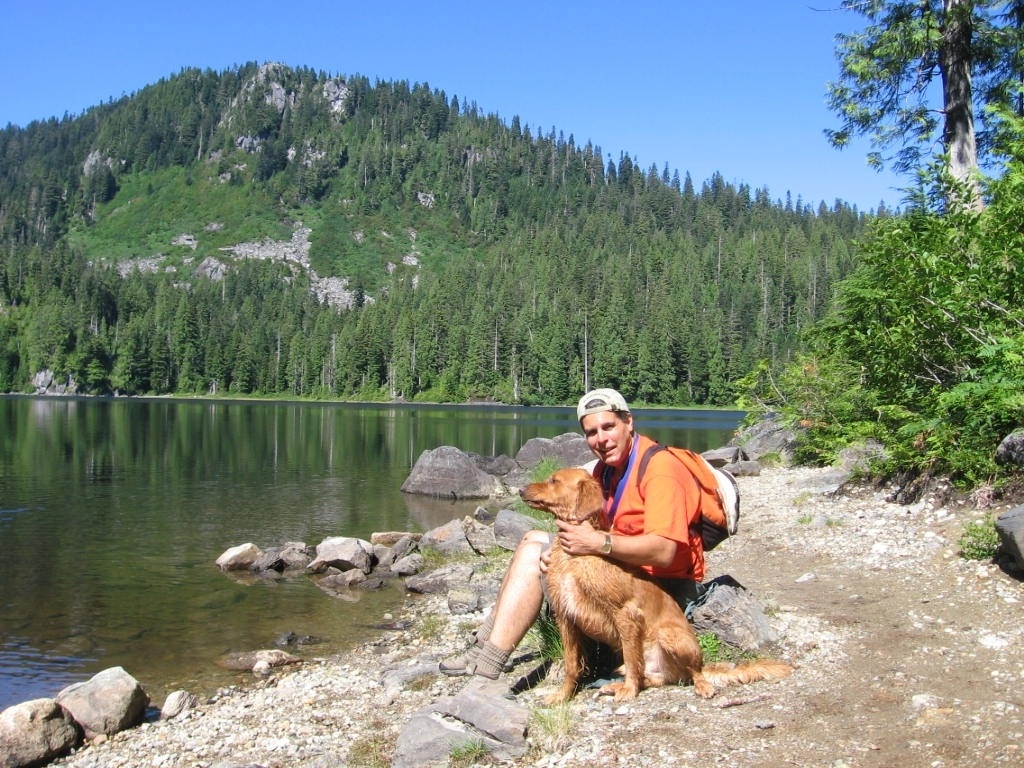
IAS Director Larry Knopp with dog Nash on the shore of Boardman Lake
By Song Jordan
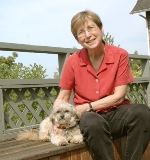
Dr. Claudia Gorbman, film studies professor at UWT, has learned how to combine many of her passions in her research -- love of music, movies, and the French language.
Studying things she loves has not been a solitary process. Her studies have been recognized by her colleagues. Gorbman is the UWT 2009 Distinguished Research Award recipient.
“I’m just extremely pleased and honored to receive this award as a validation of what I do and that our campus values our work outside of the class,” she said.
Gorbman believes passion is an essential part of research and sympathizes for others who may struggle with their research.
“It’s unfortunate that they haven’t found what excites them,” she said. “The easiest way to do it is if you’re excited by it.”
Gorbman translated books by Michele Chion, a French composer, film
critic, and scholar. His published works focuses on film studies.
In 1987, her book, “Unheard Melodies: Narrative Film Music,” was published. Reviewers have said the book is a scholarly tool for people who take music’s role in movies seriously.
The book is out of print, rare to find, and sells for a high price.
On December 18, 2009, Amazon.com offered a paperback copy of Gorbman’s
book for $191.
Each winner of the Distinguished Research Award gives a
presentation. Gorbman's presentation, “Listening to Movies,” gave her
an opportunity to share her passion with a room filled with students,
fellow professors, and faculty.
She said that she threw out most of the jargon she and her
colleagues are familiar with. Digital media made it easy for her
to manipulate clips and show the different meanings through music and
images.
“I wanted to give a few perspectives of the research I do in a very presentable way,” Gorbman said.
She opened the presentation by inviting viewers to watch an image of a
car driving along a long, winding, hilly road accompanied with a few
distinct types of music and speak about the way they regarded it.
Each time, it produced different responses.
“I think that she did a great job involving the audience,”
said Kimberly A. Wynn, a Spring 2010 IAS graduate. “She tried to
incorporate the audience so we could get a better understanding of her
research. Very effective.”
If you would like to watch to Gorbman’s presentation, you can check it out online.
Keep you eyes peeled in the next Junctions edition for an interview with the 2010 Distinguished Research Award recipient, IAS faculty member Dr. Michael Honey.
By Melissa Dodge
University of Washington Tacoma's
Interdisciplinary Arts and Sciences program offers numerous study
abroad destinations, including locations within the United States, and
is continuing to expand them. Each year, new opportunities are
presented to students, and more and more are accepting them. From
Beijing to Moscow, there are a multitude of experiences out there for
students and faculty alike.
All of the students who have ventured to the following destinations have increased their knowledge through the IAS travel programs. The options for travel include places such as, Turkey, England, Italy, Costa Rica, Kenya, Mexico, China, Japan, Germany, Russia, Cuba, and the Southwest. Following is a glimpse at just a few of those programs. For more information about these locations please visit http://www.tacoma.washington.edu/travel.
SOUTHWEST
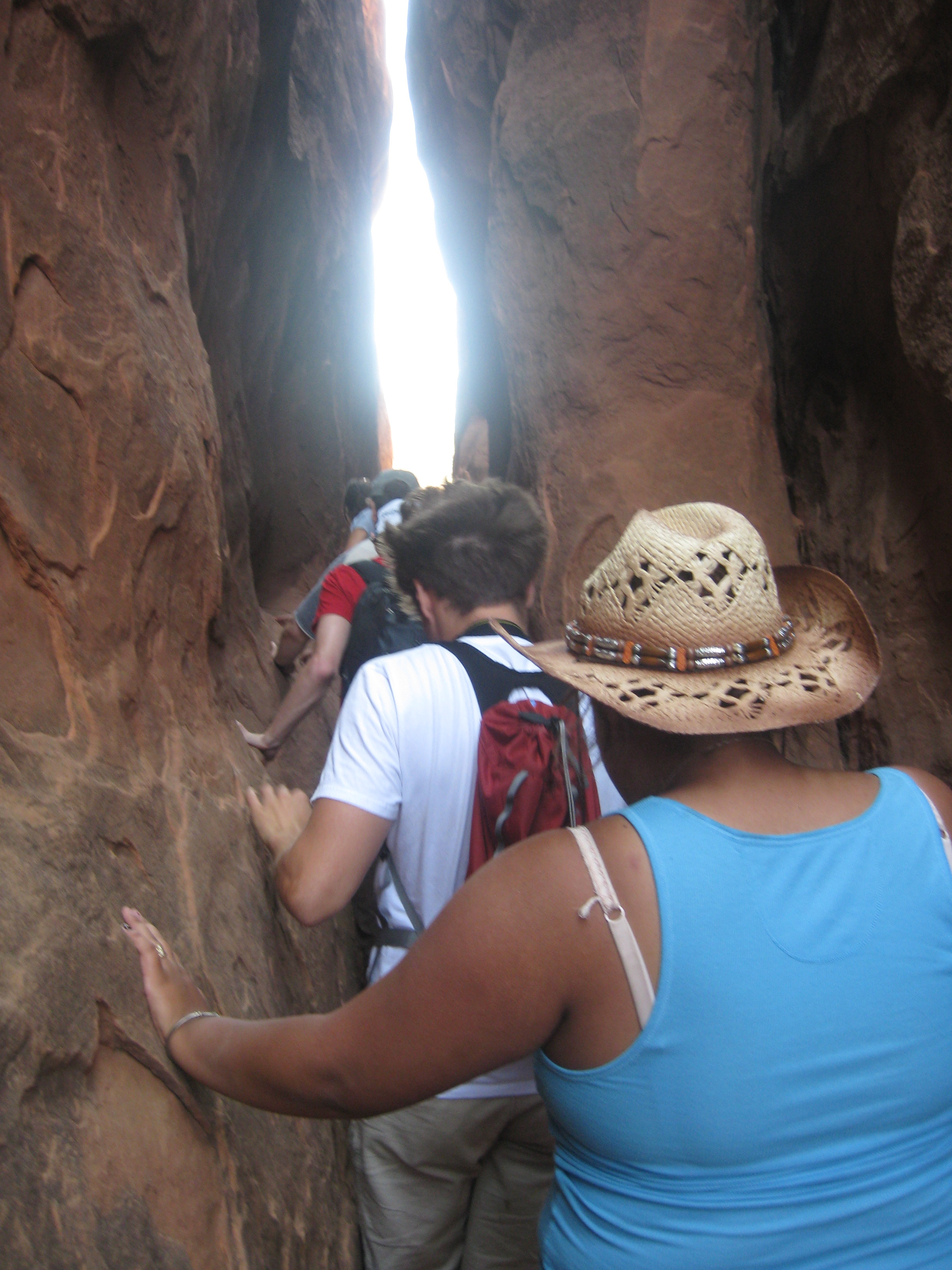
Students hike through a canyon pass during their Southwest excursion in Summer 2009
In June 2009, six students from UWT accompanied Tyler Budge, professor of 3-D art, and Anne Beaufort, professor of writing, for a trip through the southwest. Throughout the course of their trip, they visited Chaco Canyon, Shiprock, Moab, Salt Lake City and Horseshoe Canyon.
The course load that went along with this experience was hefty, but necessary. Three books and poems were assigned in addition to the art portfolio that each student had to put together. The Students received 10 credits for their work.
GERMANY
Philosophy professor Amos Nascimento and history professor Johann
Reusch set up a partnership with the University of Frankfurt and,
subsequently, accompanied students to Germany in order to educate the
students about Germany’s culture. They held the classes in museums, at
parks, and on the streets to give the students a new perspective on the
German way of life.
Although there were 28 inquiries and 19 applicants, only 12 undergraduate students and two graduate students were selected. The itinerary for this trip included the Main Cultural Festival, the Museum Festival, tours of the Rhein River, Darmstadt, Wiesbaden, Aschaffenburg, and city tours in Frankfurt. Because the program went so well, Nascimento and Reusch offered it again for summer quarter 2010.
ITALY
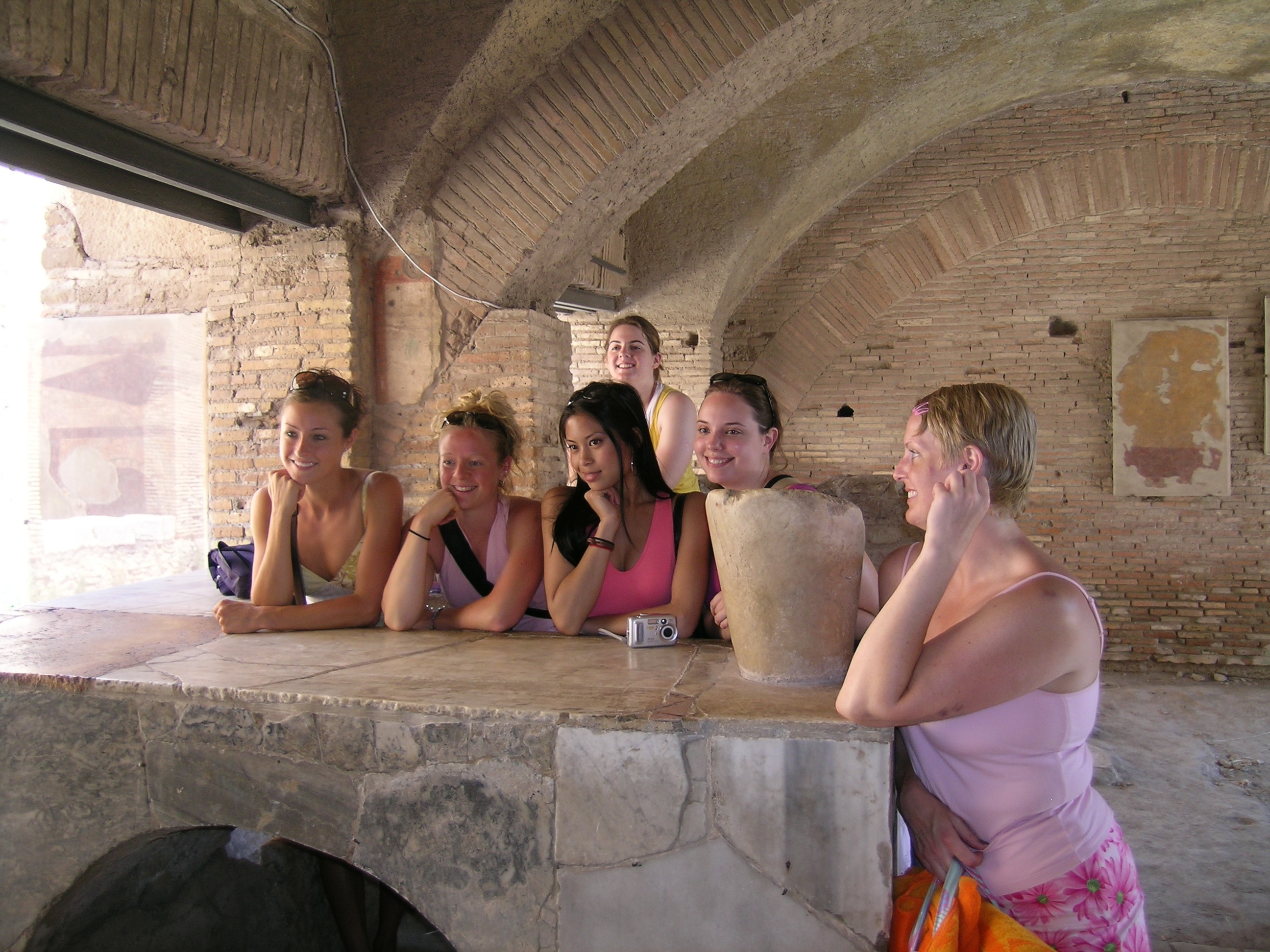
IAS Professors Michael Kucher and Julie Nicoletta, both history
professors, offered the summer program in Rome twice. The first
excursion took place in 2002, when Kucher and Nicoletta accompanied 25
students for three weeks in Rome. It was a 10-credit course and spanned
from mid-June to early July. For the second trip in 2005, they took 18
students and stayed for the entire summer. In order to benefit students
who applied for and obtained financial aid, this became a 12-credit
course. The students were required to give a research presentation
after the trip.
“We have thought about doing the course again, but with the low dollar, we are not sure we could make the program affordable for students,” Nicoletta said.
JAPAN
In June 2008, Dr. Mary Hanneman, professor of Japanese history, and Pierce College's Japanese instructor Kazuko Howard teamed up to offer a study abroad excursion to Tokyo, Japan. The program was made available to students from both colleges.
Each student that took advantage of this opportunity earned 12 to 15 credits, but was expected to complete classes in Japanese language and Japanese history in addition to their research projects. The study tour was based on the campus of Tamagawa University, and an optional excursion to Kyoto was offered.
ENGLAND
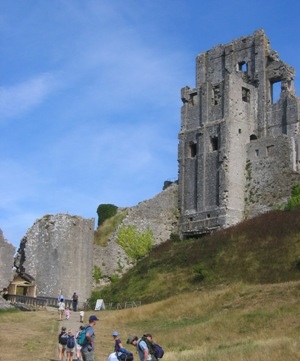
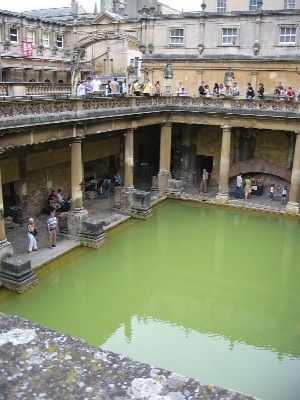
Students visited the Corfe Castle and the ancient Roman baths while visiting the English countryside
During the summer of 2006, IAS Professors Cheryl Greengrove and Sian
Davies-Vollum, both of whom specialize in environmental science,
accompanied eight UWT students to the Jurassic Coast of Southwest
England. While on this trip, the students studied geology and landscape
while learning firsthand about England’s culture.
The students that took advantage of this opportunity provided to them through UWT were involved in preparatory classes prior to the trip, experimental field exercises and field journaling throughout the trip, and research and presentation following the trip.
CHINA
During the summer of 2009, Hanneman, along with Dr. Yi Li of Tacoma
Community College, led a group of students to China. The students spent
three weeks studying Mandarin Chinese at Peking University located in
Beijing.
In addition to their language studies, they spent one week traveling to
various places throughout China, including Inner Mongolia. Each student
that took advantage of this eye-opening opportunity earned 15 credits
for the work and effort that they poured into this experience.
COSTA RICA
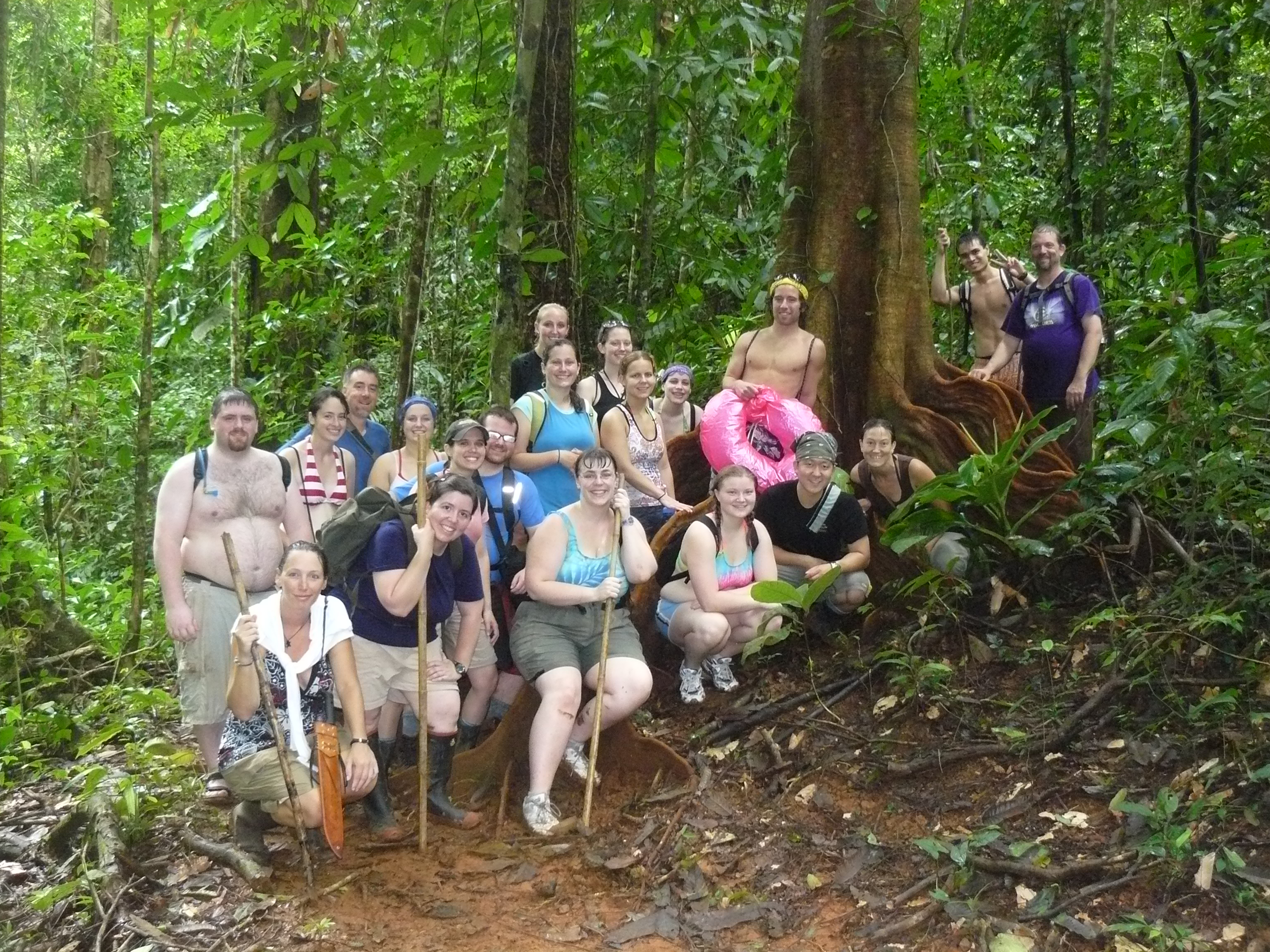
Students pose in a Costa Rican jungle during the 2008 UW Exploration Seminar
Dr. John Banks, a professor in the environmental science program,
has been in charge of the study abroad program in Costa Rica since
2004. Banks has taken enthusiastic students to this amazing country
four times. Three of those times, he led a UWT tropical ecology course
in Costa Rica and in this past year he introduced an Exploration
Seminar course.
Along with running these classes, Banks takes students to research
biological diversity of arthropods in the rainforest and agricultural
fields of Costa Rica. In the summer of 2007, Banks led UWT and UW
Seattle students on an 18-day trip on which students conducted
independent research projects as part of the course requirements
throughout their stay in Costa Rica.
Most recently, Banks has been offering his work to coffee farms around Costa Rica in attempt to establish a link between farmers’ practices with environmental health and coffee yields.
TURKEY
In the summer of 2006, Dr. Turan Kayaoglu, professor of political
science, accompanied 19 UW Seattle and Tacoma students to Turkey. That
was the only time that this program has been offered through UW’s
exploration seminars thus far. Although Kayaoglu found the experience
fascinating and rewarding, he found it demanding as well.
“I may think about offering it again in the future, but have no immediate plans for that,” he said.
KENYA
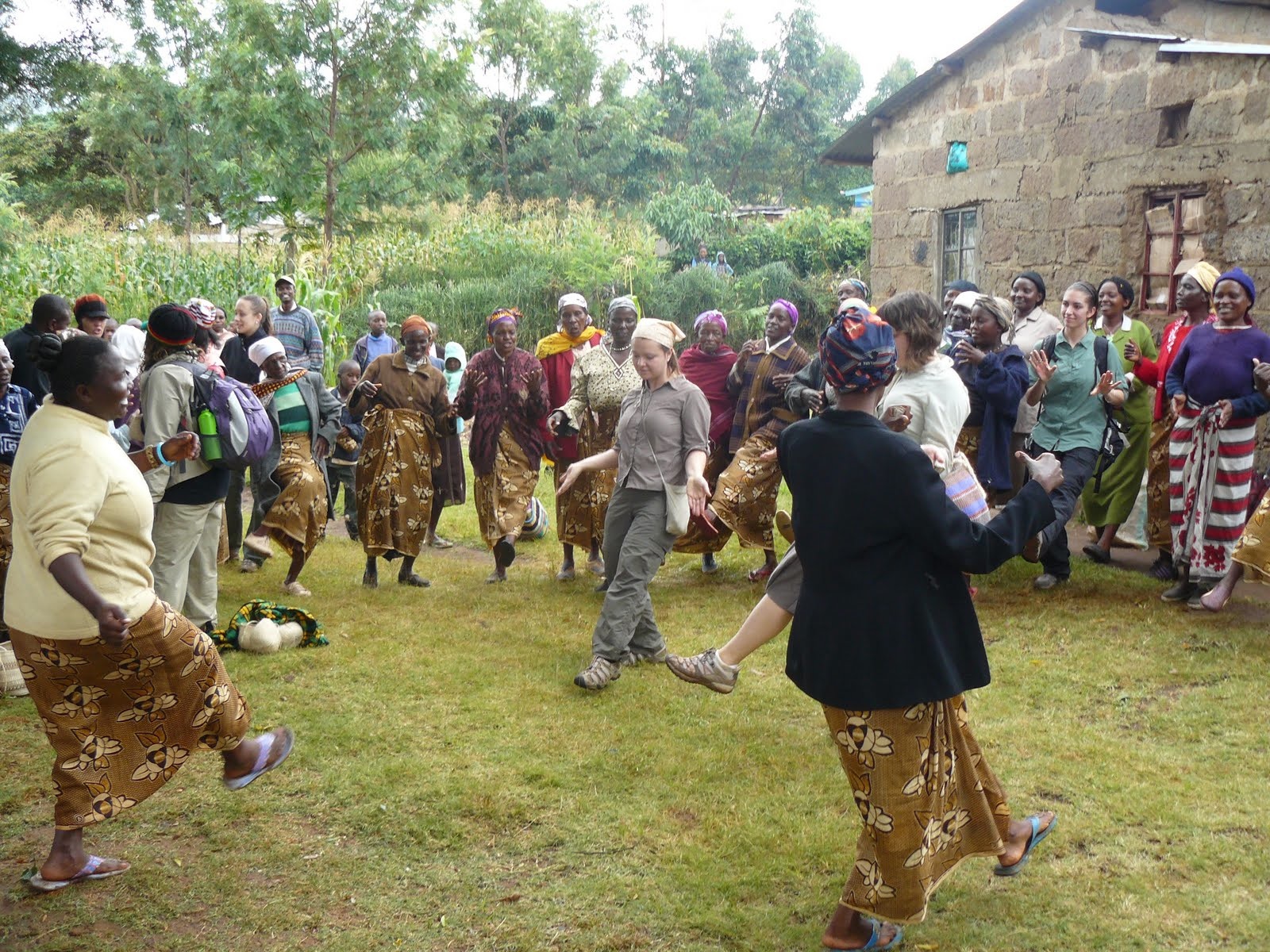
Students perform a farewell dance with Green Belt Movement members
In April and May of 2009, Banks accompanied two undergraduate
students to East Africa to inspect the declining bird population. The
purpose of the trip was to see if the decline was linked to the local
arthropods they eat. They spent three and a half weeks studying in
Kenya, and Professor Banks, along with Dr. Jim Gawel, a professor in
the environmental sciences program, returned there with a UWT class in
February 2010.
The 2010 trip required the students to take a 10-week course on the UWT campus before they spent three and a half weeks traveling throughout Kenya. It was a 12-credit class that provided students with opportunities such as home stays and hands-on lectures via site visits. Following the trip, students were expected to create and present a final project.
MEXICO
Dr. Cynthia Duncan, whose specialties include Spanish, Portuguese
and Latin American studies, has offered summer programs for students in
order to improve their Spanish language skills, as well as to increase
their knowledge of the Mexican culture. Both three-week and five-week
programs to the city of Kukulcan are available, but students also have
the option of spending an entire quarter in Mexico. Internship programs
and independent studies are a possibility for students looking to
travel during the academic year.
“Mexico continues to be one of the best bargains in international
travel. The U.S. dollar is still strong there, and prices are
relatively low,” Duncan said.
She added, "I would love to plan a trip for UWT alumni and their families and friends, if they're interested in going to Mexico for a short travel study program." If you are interested, please contact Duncan: cyduncan@u.washington.edu.
RUSSIA
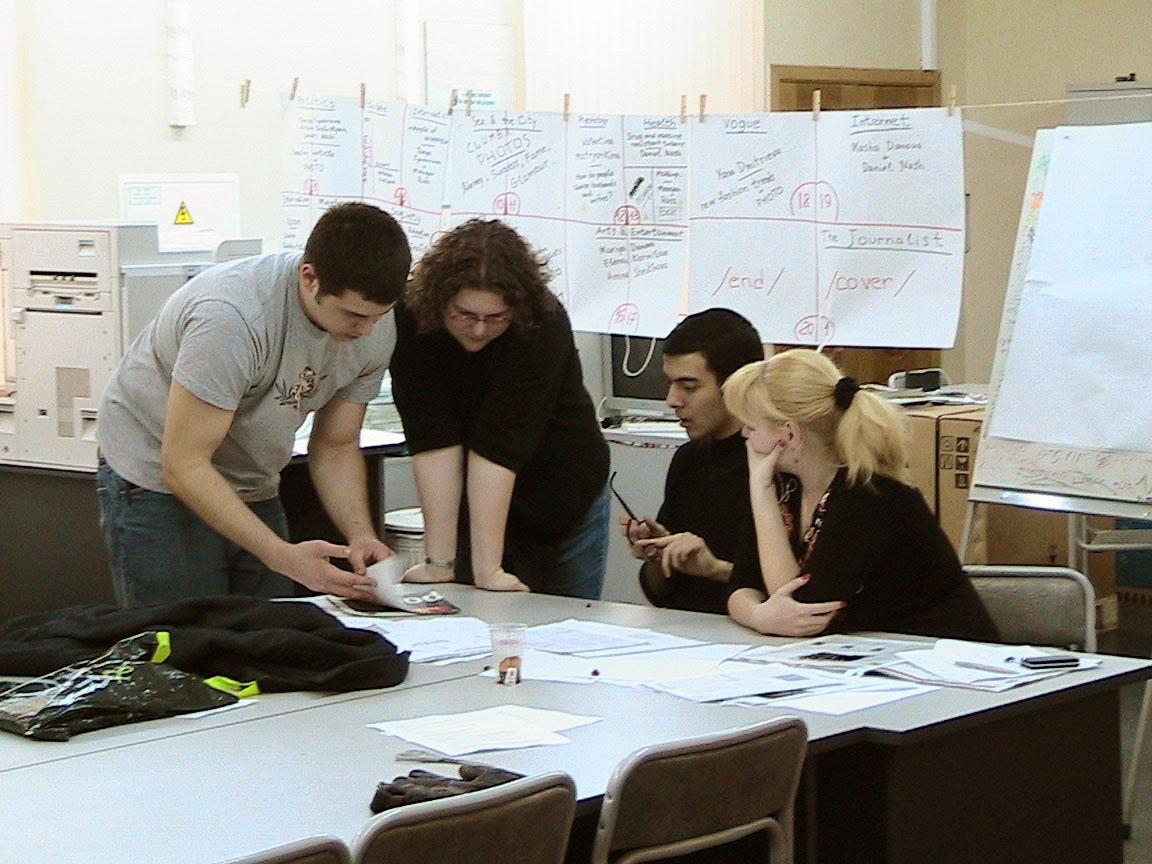
UWT and MSU students plan the page layout for a one-shot news magazine, "The Journalist"
Since the spring of 2003, communication professor Chris Demaske has
taken select groups of students to Moscow to participate in a
competitive internship project that currently includes the joint
production of a web publication between UWT students and students from
Moscow State University School of Journalism. Students from across the
UWT campus may apply to travel to Moscow to participate in the project
but no more than four are chosen in any given year to travel abroad
with the project.
In addition to going to Moscow once a year, students and faculty from MSU travel to Tacoma to reproduce a similar web publication. All UWT students are welcome to participate in the project when it takes place on the Tacoma campus.